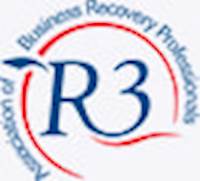
Can you dissolve a company with debt?
However, there is a legal requirement to notify creditors - and any creditor (including HMRC) may object to dissolution. It is an offence to not give notice to creditors.
If you dissolve a company with debts, it is possible for the company to subsequently be restored to the companies register at a later date by a creditor seeking payment.
There are solvent liquidations and insolvent liquidations. Solvency determines the type of liquidation which can be progressed:
Creditors can object to the dissolution
As part of the dissolution process, creditors must be notified within 7 days of the strike off application. Creditors are allowed three months to consider a dissolution request and can (and frequently do) object to the request. Creditors may object to dissolution where they intend to chase their debt.Failure to notify creditors can result in prosecution and disqualification from acting as a company director. There can also be an investigation by the Insolvency Service.
Creditors can ask for company restoration
If you dissolve a company with debts, it is possible for the company to subsequently be restored to the companies register at a later date by a creditor seeking payment.
Liquidation instead of dissolution
In some circumstances, a dissolution application will not be appropriate and the company closure should be processed via liquidation. We advise speaking to a qualified insolvency practitioner at Greenfield Recovery on (0121) 201 1720, to help you decide whether to proceed with dissolution or liquidation.
Types of liquidation
There are solvent liquidations and insolvent liquidations. Solvency determines the type of liquidation which can be progressed:
- Solvent liquidations – Members’ Voluntary Liquidation (MVL)
- Insolvent liquidations – through Creditors’ Voluntary Liquidation (CVL) or Compulsory Liquidation (also called a winding up order)
Members’ Voluntary Liquidation (MVL)
Managed by a licensed insolvency practitioner, an MVL manages the process of asset disposal/liquidation, ensuring that company debts are paid off. All remaining proceeds left are then distributed to members. The company will be dissolved when the liquidator has completed the liquidation.
Creditors’ Voluntary Liquidation (CVL)
Managed by a licensed insolvency practitioner, a CVL manages the process of asset disposal/liquidation, ensuring that as many creditors as possible are paid. Due to the insolvent status of the business, creditors are paid dividends on a pari passu basis. Invariably, creditors are not paid in full.
Compulsory Liquidation or ‘Compulsory Winding Up’
Sometimes a company will be compulsorily liquidated by order of the court and not through a voluntary procedure driven by shareholders. An Official Receiver will be appointed initially, to manage the process. Creditors can nominate their own choice of liquidator, as can the Official Receiver via a rota allocation process. Often a compulsory liquidation will be instigated by HMRC, however private sector creditors may also lodge a winding up petition in court to recover debt and trigger an investigation into director conduct.
Company director personal liability for debts
In the majority of company closures, a director will not be personally liable for company debt. This is because a limited company is a separate legal entity to its directors and shareholders, which limits their liability. There are certain circumstances though where a company director may be liable:- Personal director guarantees – a director has personally guaranteed company debts in the event that the company is unable to pay
- Trading whilst insolvent – a director has allowed an insolvent company without a reasonable prospect of avoiding insolvency, to wrongfully continue trading
- Overdrawn directors loan account – a director owes money to the company on their loan account
If it is established that the above circumstances have arisen then debts may lead to personal liability and a director can be held liable for their repayment. Closing via a formal liquidation before matters get out of hand, mitigates against this risk.
Call Greenfield Recovery with all your questions
Speak to the experts about how to dissolve a company with debt, by calling Greenfield Recovery. We can advise on dissolution versus liquidation advantages and disadvantages and the best steps to take when closing a company with debt. Call Greenfield Recovery now on (0121) 201 1720 or enquire below.



